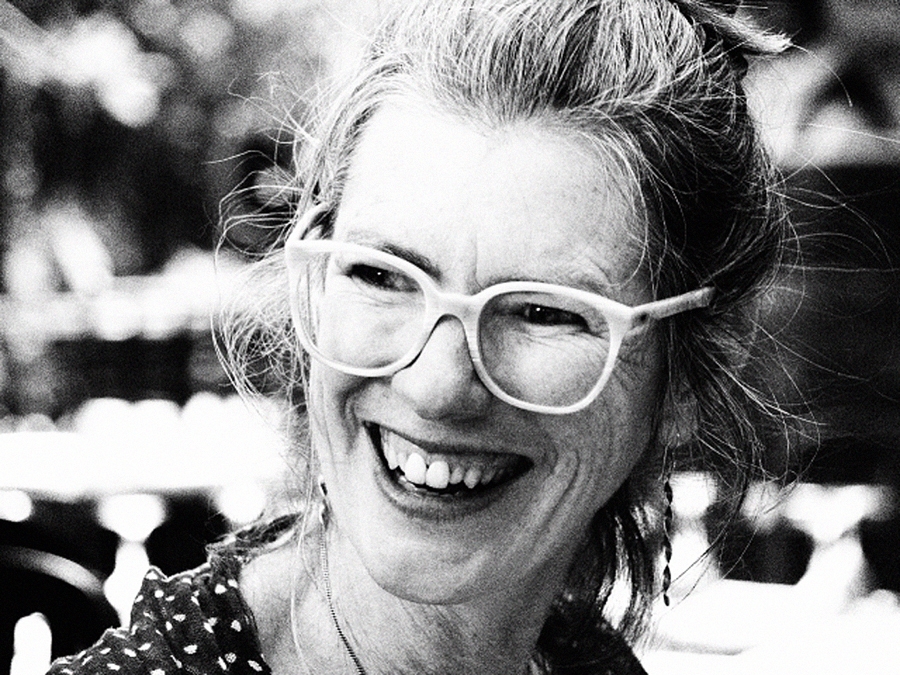It all began when a friend read me a section of Lisa Robertson’s The Weather (2001) while we were waiting for our flights at an airport. I instantly – and entirely unexpectedly – started crying, as if the words had been needles pushed deep into my flesh. It felt like mental acupuncture. Crying had indeed been on the agenda for a little while, being the topic of dinner conversations and eventually also email exchanges between a group of friends. But it was ‘crying on aeroplanes’, not at airports. And here I was, with wet cheeks, long before takeoff.
The Weather is an airy publication following a rock-steady rhythm: the days of the week. No matter how much we try and stretch time and squeeze in another job, one more project, an extra task. Dusk and dew and ripples and sun smoke fill the pages. It is the meanderings of ‘weather’ with some personality, not always reliable and yet not completely unreliable. Human scale and meteorology dimensions at once; thus weather and not climate, landscape and not geology. Deep materialism and eccentric emotions hold hands.
The poem obviously had an unusual power, at that very moment at least. A sort of ‘referential stability’
The poem obviously had an unusual power, at that very moment at least. A sort of ‘referential stability’ in the midst of things fleeting, to use one of Robertson’s own expressions. For someone like me, who does not read poetry that regularly, not out of dislike or lack of interest but simply due to time being stuffed with other things, it was a bit of a revelation. Wanting to find out more, I dug into Robertson’s writing. A powerful practice emerged, one that stretches from urban deliberations with Vancouver at their heart and the founding of an ‘office for soft architecture’; to experimenting with pink-lensed glasses, to publishing poetry.
The author is not young but not exactly old either. She has published books with titles like Magenta Soul Whip (2005), XEclogue (1993) and Debbie: An Epic (1997). She writes for magazines and journals, and teaches writing at art schools. In a recent conversation with her old friend the poet and painter Etel Adnan in Bomb magazine, there is lengthy talk about love, and about how great philosophy is thinking and feeling at the same time, how great poetry surely means writing and feeling at the same time too. Maybe that was what happened to me? Reading/ listening and feeling at the exact same moment? If not a quick fix, then at least instant poetics. No delay allowed, but with strong effects.
Robertson and Adnan go on to discuss obscurity being as rich as luminosity. ‘Some things are not meant to be clear, obscurity is their clarity,’ says Adnan at one point. Then I came across The Men – A Lyric Book (2006). I was not prepared for such a precise and yet virtual dissection of contemporary men. Here Robertson enters the realm of distant observations; men become the object of her scrutiny. Most likely unbeknownst to herself, she offers another revelation. Only that this time, crying is over. Smiling takes its place.
‘They are both sublime and
Beautiful, delicate
And copious, rolling and touching
And rubbing one against another
In their most serious actions
But nothing makes them men
But their word in the new-found world.
I study them more than any other subject
Studying hard in this disordered rabble
Remembering to drink water
Judging soundly like a man
The ceremonies and decorations
The opportunities for ornament
Inorganic and misty they exist
Against gravity and they fail
Glamorously their ideal which is to float
In the air without any support
So beautiful and sucking.’
I flick through the pages and cannot hide my appreciation of her exact use of things obsolete:
‘The funny pathos of men – I salute this.’
I start laughing.
This article was first published in the Summer 2014 issue
